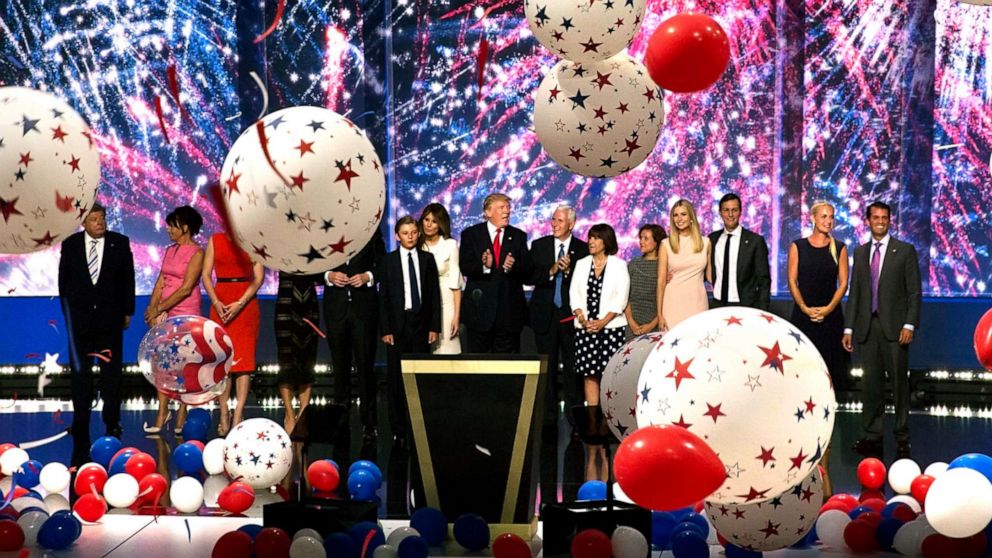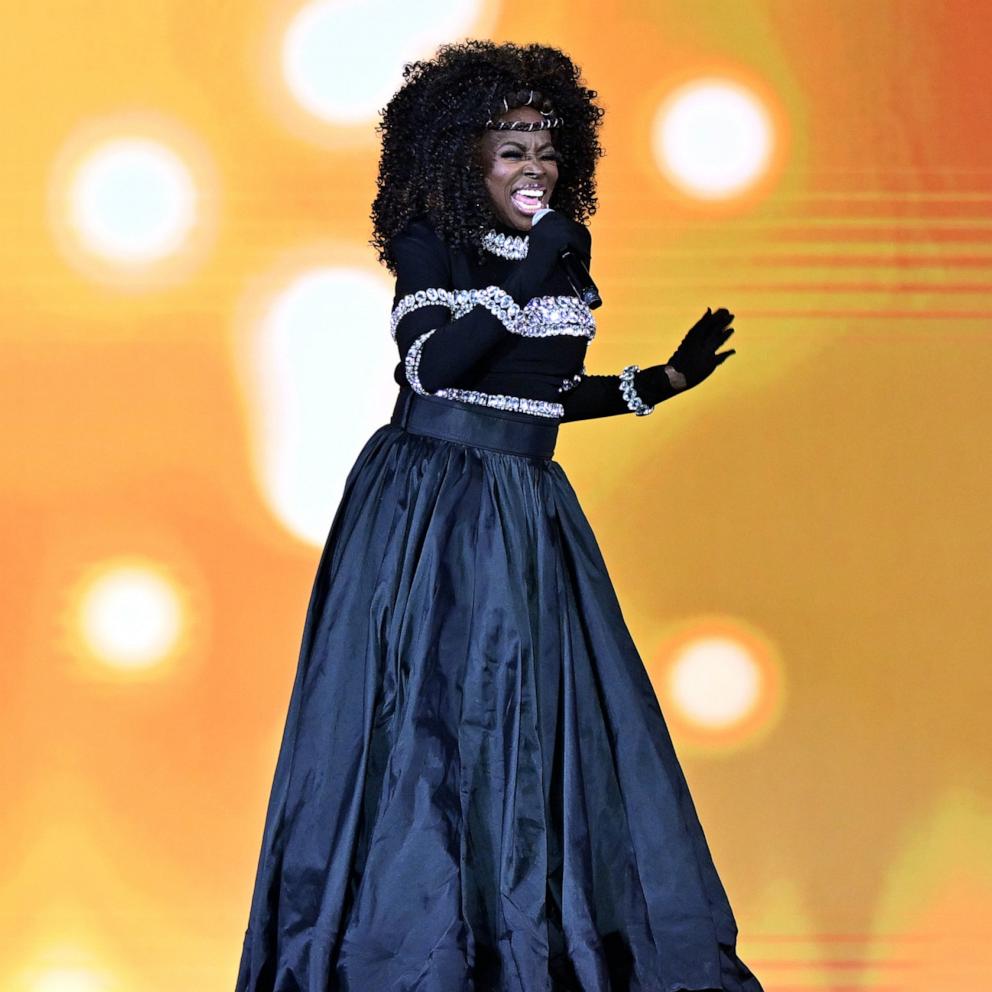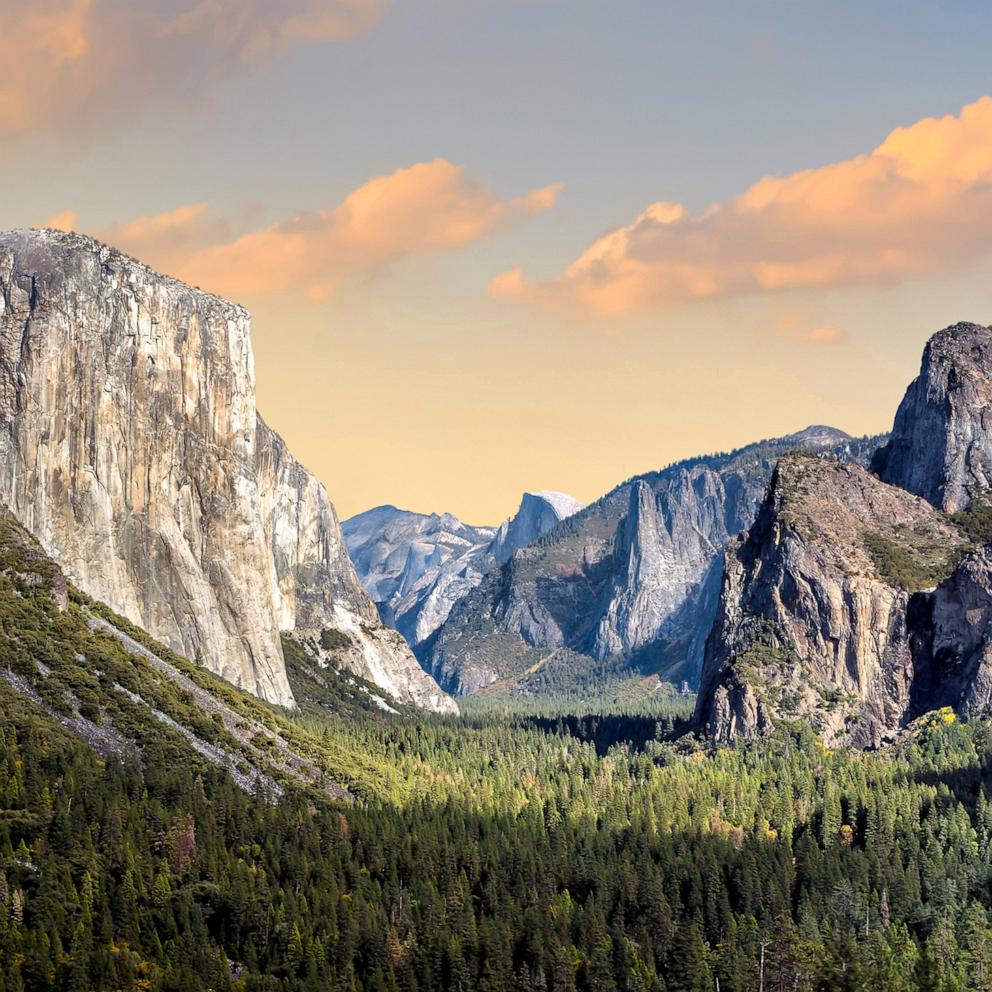Trump gives North Carolina governor 'a week' to decide if RNC can move forward as planned
President Trump escalated tensions with North Carolina Gov. Roy Cooper on Tuesday over the Republican National Convention, giving the Democratic governor only a week to decide if the event can move forward, with full attendance, as planned.
Trump said from the Rose Garden that the Republican party needed "a fast decision" from Cooper on whether the party could hold its convention with "the doors open," adding that the governor has "been acting very, very slowly and very suspiciously."
"We have to know before we spend millions and millions of dollars on an arena to make it magnificent for the convention and we have tremendous people," Trump said. "Now, if the governor can't tell us very soon, unfortunately, we’ll have no choice...If he feels that he’s not going to do it, all he has to do is tell us and then we’ll have to pick another location, and I will tell you a lot of locations want it."
"Within a week, certainly, we have to know," the president added.
Earlier on Tuesday, Cooper said that he is prioritizing public health over politics in the planning for the convention, after Trump raised the possibility of moving the event out of Charlotte.
"I'm not surprised by anything that I see on Twitter," the Democratic chief executive said during a COVID-19 press briefing. "I will say that it's okay for political conventions to be political, but pandemic response cannot be."
"I supported having the convention in North Carolina. But we have to put the health and safety of North Carolinians as the guiding star in this process, and we hope to continue the discussions and look forward to those discussions with the RNC later on this weekend and into next week," he later added.
Cooper warned that it is still too early to give the president the assurances he demanded about "whether or not the space will be allowed to be fully occupied."
"Already, we've been in talks with the RNC about the kind of convention that they would need to run, and the kind of options that we need on the table. We're talking about something that's going to happen three months from now, and we don't know what our situation is going to be regarding COVID-19 in North Carolina," he said.
"Everybody wants to get back into action soon, but I think everybody knows that we have to take some steps to make sure that people are protected because this virus is still going to be with us in August," Cooper added.
For months, Republican leaders' public posture has been that the party's national convention, where Trump will be formally nominated in August, is "full steam ahead." But on Memorial Day, the president appeared to hamstring convention planning by threatening to pull the event from Charlotte.
"Plans are being made by many thousands of enthusiastic Republicans, and others, to head to beautiful North Carolina in August," Trump tweeted, adding that he has "love" for the battleground state before shifting the fault onto Cooper.
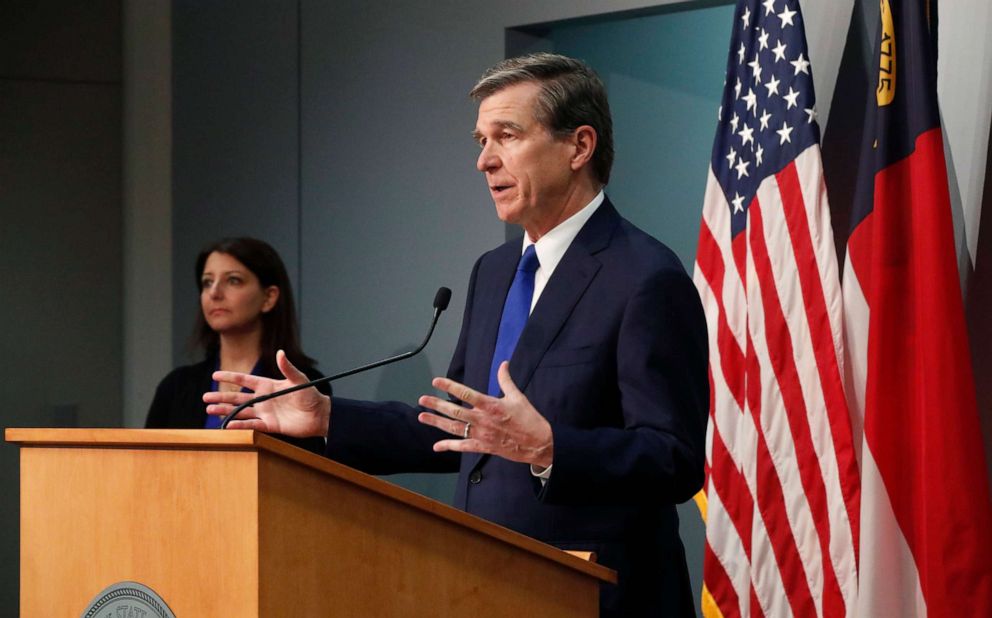
Trump, taking aim at a political rival, laid blame squarely on the state's Democratic governor for being in a "shutdown mood" that could preclude "full attendance" at the event during the coronavirus crisis.
"They must be immediately given an answer by the Governor as to whether or not the space will be allowed to be fully occupied. If not, we will be reluctantly forced to find, with all of the jobs and economic development it brings, another Republican National Convention site."
Vice President Mike Pence echoed the president on Monday, telling Fox & Friends that if the state doesn't move quicker to reopen its economy, the party is considering moving to an alternate venue in a state "that is farther along on reopening and can say with confidence that, that we can gather there." Despite urging that the party wants to keep the convention in Charlotte, some of the other possible states floated by Pence as potential hosts for the convention included Georgia, Texas and Florida.
Trump later wrote in another tweet that he has "zero interest" in moving the quadrennial gathering to his resort in Doral, which sits just outside of Miami, ruling out at least one Trump-owned venue in Florida. He also reiterated that he "would like to stay in N.C."
Health officials in North Carolina are now seeking more clarity on planning for the event, requesting "a written plan" from organizers of the convention on how to "approach the COVID-19 safety aspects" in a new letter obtained by ABC News' Raleigh affiliate.
The letter, from North Carolina Department of Health and Human Services Secretary Mandy Cohen to Republican National Convention CEO Marcia Lee Kelly, comes in response to the president's tweet on Monday, and confirms that the RNC and state officials in North Carolina were in talks about convention planning as recent as Friday.
"We also discussed on Friday the need to plan for different levels of impact of COVID-19 so the RNC convention logistics could be tailored to the COVID-19 situation we find ourselves in at the end of August."
Cohen urges the RNC to consider "several scenarios" as they continue to move forward with planning, since the abrupt threat from Trump comes just after North Carolina saw its highest one-day spike in cases over the weekend since the onset of the pandemic.
"It will be important to have several scenarios planned that can be deployed depending on the pubic health situation," she wrote.
"The RNC wants to hold a full in-person convention in Charlotte, but we need the governor to provide assurances that it can occur. We will need some answers sooner rather than later, or we will be forced to consider other options," Republican National Committee spokesperson Mandi Merritt said when asked for a response to the letter.
Cooper referenced the letter during the briefing, saying he aims to reach a resolution with the RNC about how to move forward with the event.
"We're going to have to take steps to protect people. We have asked the RNC to present to us in writing their proposals. We've had discussions with them about a very limited convention all the way up, and we want to see in writing what their plans are," he said.
"We asked NASCAR to do the very same thing, and NASCAR did a good job this weekend of executing their plan," he added. "We want to see from the RNC what their plans are, and we have asked them to submit those plans to our public health officials. They have someone hired to to advise them as well. And we look forward to the back and forth on that. We'd like to reach a resolution that everybody can be reasonable about that puts public health, safety, the science and the facts as the number one thing we're trying to do here. So we look forward to those continue conversations."
A former Democratic convention chairman warned against moving forward with a full-scale convention in the middle of the deadly outbreak.
"The operative word is not whether they can, but whether they should," said former Los Angeles mayor Antonio Villaraigosa, who chaired Democrats' 2012 convention in Charlotte. "It would be insane to put 20,000 people in a stadium as if were we not in the worse pandemic in a century."
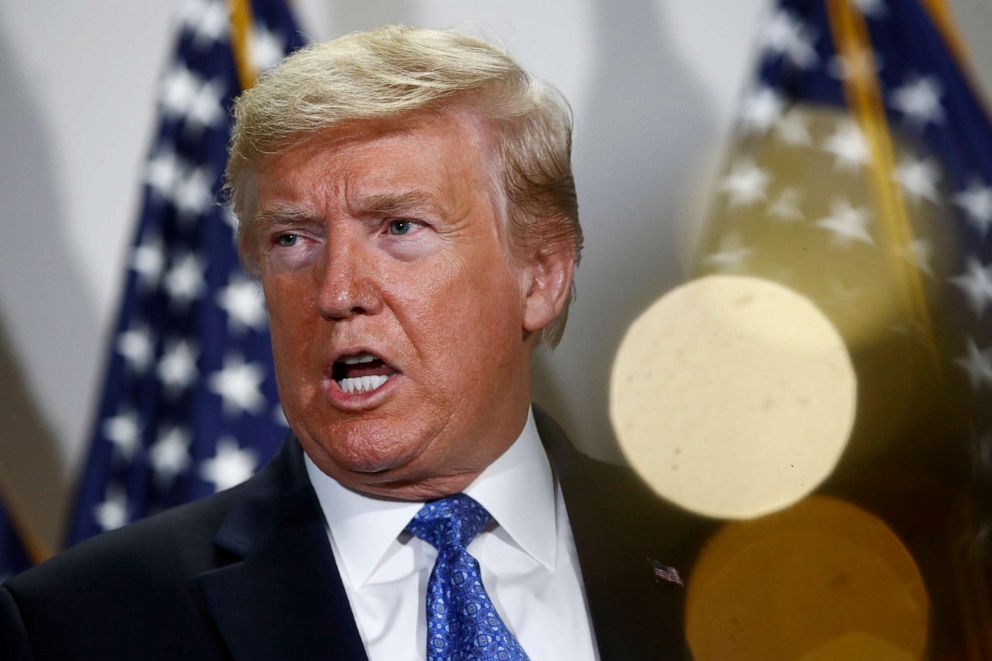
Earlier on Tuesday, White House Press Secretary Kayleigh McEnany referred questions on decision-making surrounding the president’s threats to pull the GOP convention from North Carolina to the RNC and campaign but suggested that Cooper could use the coronavirus as an excuse to restrict the Republican convention.
"The president wants to ensure that politics is not at play and determining how and when the convention can work. He wants to make sure a Democrat governor is not putting in place extraneous restrictions that would prohibit him from having the convention and holding it," she said.
It would be unprecedented for the party to move the event to a new location in just three months.
Bill Harris, a longtime Republican operative and lobbyist who served as chief executive officer of the 1992, 2004 and 2012 GOP conventions, told ABC News that changing the location of the convention is "probably not the ideal thing, but you probably could do it."
"The closer you get, it gets harder to do and more expensive, but you could do it," he said.
Harris said that Republicans could change their plans up until mid-July, when party officials begin to relocate to Charlotte. After that point, construction will begin inside the arena hosting the convention proceedings, and the party will be spending more money.
"Normally it's very difficult to find a venue, because everything big enough is usually booked up years in ahead," he said. "Now with the virus I’m not sure what the status is."
Just last month, RNC Chairwoman Ronna McDaniel said that the party plans to make a determination "by the end of June, early July" on the format of the convention since the build out for the signature event doesn't begin until July and "there's no need to make a decision right now."
Trump's strike against a Democratic governor in a battleground state comes just five months before November's election, when the president will once again seek to carry the state he won by just four percentage points four years ago, the same year Cooper unseated GOP incumbent Gov. Pat McCrory in a close race for the governorship. This year, Trump isn't the only incumbent on the ballot, with GOP Sen. Thom Tillis facing a tough road to re-election up against Democrat Cal Cunningham, a former state senator and an Army veteran.
The Tillis campaign declined to comment on the president's tweet, instead deferring to previous comments the senator gave to the Charlotte Observer late last week.
"There will be a convention in Charlotte. It’s a matter of what it looks like," Tillis said. "There’s an entire support infrastructure that needs to be available."
The convention is currently scheduled for Aug. 24-27, just one week after the Democrats are set to hold their rescheduled convention. Planning for both nominating events, which bookend the primary season, is a lofty undertaking that takes years to organize and typically attracts thousands of the party's rank-and-file, insiders, and supporters.

But since the onset of the coronavirus crisis, organizers for both conventions have been faced with unparalleled circumstances and forced to recalibrate their best-laid plans on the fly.
After postponing the convention from July to August, Democrats are still remaining officially coy about how they plan to proceed. The party is considering contingency options for the event, and earlier this month, national Democrats paved the way for remote voting, by allowing delegates to partake even if they don't attend the event in-person - potentially shifting the convention closer to a virtual format.
For Republicans, McDaniel has repeatedly said that a "virtual convention" is not on the table since having an in-person convention is inscribed in the GOP's party rules.
But on Tuesday, McEnany wouldn't rule out the possibility that the president would consider holding a virtual convention, before reiterating the president's desire for the convention to take place in-person and sees "no reason not to" at this time.
"Of course, we always assess the facts on the ground at any time. But at this moment, the president wants to see this convention take place and sees no reason not to, as the nation begins to reopen," she said, before adding, "I would just note that we assess the facts on a daily basis and, currently, we're coming down. And that's really encouraging to see. And we're ready for the convention to take place."
Sources tell ABC News there have been discussions about back up plans including just bringing delegates into the arena and scaling back many of the events around the Republican convention.
After Trump's tweets about moving the convention, some Republican leaders in states mentioned by Pence as possible alternatives signaled their openness to moving the convention to their states.
"Florida would love to have the RNC. Heck, I'm a Republican, it would be good for us to have the DNC in terms of the in terms of the economic impact when you talk about major events like that," Florida Gov. Ron DeSantis, a key Trump ally, said during a press briefing Tuesday.
"I think that that would be great," he continued. "The door is open, we want to have the conversation...I think it would be good for the people of Florida."
But DeSantis added that the state would do so "in accordance" with any safety restrictions.
"So my posture on all this is we should try to get it done as best we can and in accordance with whatever safety requirements," he said. "But you know, his government will be talking about the safety restrictions, the President's government, so if he's going to do a convention obviously he's gonna want to abide by whatever they're saying. So if we can get that done and do it in a way that's safe, that would be a huge economic impact for the state of Florida."
Other states are also lobbying to host the convention too, if the RNC were to move forward with moving the gathering outside of North Carolina.
Georgia Gov. Brian Kemp said in a tweet directed at the president that his state "would be honored to safely host" the convention.
"With world-class facilities, restaurants, hotels, and workforce, Georgia would be honored to safely host the Republican National Convention. We hope you will consider the Peach State, @realdonaldtrump!"
Georgia Sen. Kelly Loeffler, who was appointed by Kemp to fill the seat vacated by former Sen. Johnny Isakson, echoed Kemp's tweet, writing, "Totally agree, Governor. Georgia is open for business, and we have what it takes to safely and successfully host the Republican National Convention, Mr. President! @realDonaldTrump."
In Texas, another state Pence floated during the Fox interview as a possible host, the Texas GOP is eager to bring the convention to the state.
"Texas would welcome President Trump and the RNC Convention," James Dickey, the chairman for the Republican Party of Texas, said in a statement. "Until then, based on Governor Greg Abbott’s progress in opening Texas, we are on track for our state convention as planned in person in July.”
But whether Trump would actually move the convention is still not clear, particularly without facing repercussions. The RNC is locked in a contract, signed in 2018, with the city of Charlotte to hold the convention in the city.
Earlier this month, however, Charlotte Mayor Vi Lyles suggested that the agreement might be subject to change given the unprecedented health crisis.
"We have a contract with the RNC to host this convention but we also have a commitment to our community that we will keep them safe and well," Lyles said during an appearance on MSNBC. "We can't go into this with just we agreed to something in 2018 and we are going to continue to do it. That is not the world today."
Republican strategists believe that moving the convention now is not impossible, but would be a significant feat to pull off.
"It is logistically possible to move the convention, but difficult. I think we are likely to have a small scale convention with Delegates widely spaced, tested, etc. whether in Charlotte, or elsewhere," GOP campaign strategist and lobbyist Charlie Black said in an email to ABC News.
Harris has attended every Republican convention since 1972, when officials relocated the event from San Diego to Miami Beach. He considered that move - which was made in April, according to the New York Times - to be the most analogous to the potential relocation from Charlotte in 2020 - though it was a much smaller affair than the modern presidential nominating convention.
"In hurricane situations we were doing the right thing for delegates to make sure we go our message out while working with government health officials on safety of their citizens and delegates," Harris said of his experience in Tampa in 2012. "At this point I give credit to everyone for being willing to work together."
But "when you have a party with a president in power, it’s very difficult to believe that the president’s wishes would not be complied with," he added.
ABC News' Will Steakin contributed reporting.
